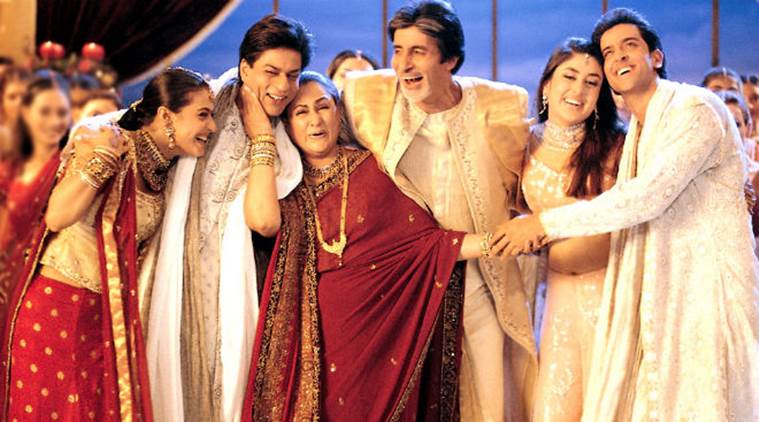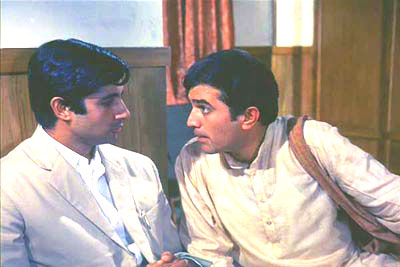 |
| Rang de Basanti |
I scoured the Internet for "best of" lists and cross-checked them with my local library's holdings. I came up with a four-film list, and away I went.
The first film I saw was Rang de Basanti (2006). I chose it both because I found it on more than one list and because I have a song from the soundtrack in one of my playlists, having become intrigued by composer A.R. Rahman after watching Slumdog Millionaire. Before Rang de Basanti, that film was the closest I had come to seeing a Bollywood musical. As I expected, I thought Rang de Basanti had an amateurish approach to characterization and plot. I also expected more dancing. I was surprised, however, by the film's invocation of the history of Indian separatism. The ending also shocked me: it was more like the end of the second season of True Detective than a musical.
I needed a more centre-of-spectrum specimen.
 |
| Kabhi Khushi Kabhie Gham |
I think I found that specimen in Kabhi Khushi Kabhie Gham (2001). This is three hours of improbably impromptu dancing, slow motion shots of lovers blinking at their beloveds, formal religious festivals with traditional costumes to reinforce the genre's conservatism, and plenty of stock characters. I was impressed by the melodrama. The young actors were almost painfully handsome, and the film gave plenty of attention to their physical appearance. The title translates as Through Smiles and Through Tears, and indeed there is plenty of crying. Whole sequences involve close ups of different people looking at each other with tears welling in their eyes. All emotions run high: when the father, played by Bollywood's legendary Amitabh Bachchan, pronounces his disapproval over his son's choice of bride (a standard plot element in Bollywood popular cinema), the sound of lightning and thunder punctuates every sentence. The sentimentality and the music-video dancing interludes fulfilled my expectations.
These expectations were tempered somewhat in my third film-festival entry.
 |
| Anand |
 |
| "Hey, I know that guy! I love that guy!" |
This film helped me identity for myself the genre that it most reminded me of: European opera. I do not like opera, for the most part, because of its emphasis on visual elements over plot and because of its glacial plot deroulement. Once I saw Devdas and the other films as opera, I was able to both appreciate the genre more and feel secure about letting the genre go from me. I am not giving up on Indian film: I am just saying that I have had my curiosity sated about the type of film that the term "Bollywood musical" conjured for me.
A simple primer for Americans about Bollywood covers the surface features of Bollywood musicals. One of my former postcolonial studies professors, Vijay Mishra, wrote a book on the Hindi film industry, for those who want a more scholarly approach. I may dip into it myself to broaden my Indian film knowledge.
| Devdas |
No comments:
Post a Comment